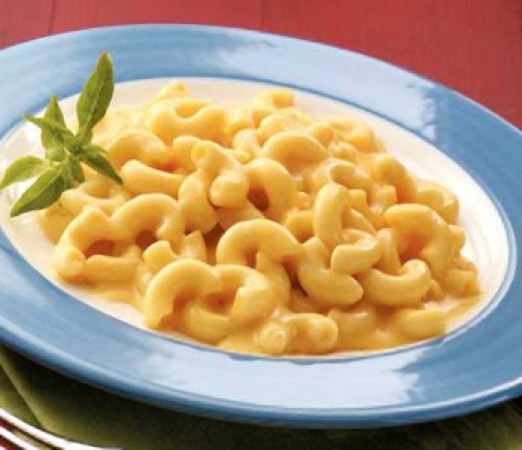
In the ever-evolving world of diet and nutrition, one question that has intrigued many is whether weight can actually be reduced by incorporating macaroni into one's diet. While this might sound like an enticing prospect for pasta lovers, it's essential to delve deeper and understand the logic and reasoning behind the claims made by dietitians. In this article, we will explore the science and expert opinions surrounding the idea of macaroni as a weight loss aid.
Macaroni is a type of pasta made from durum wheat semolina. It's a staple in many cuisines and is known for its versatility and comforting appeal. But can it be more than just a delicious meal?
To understand macaroni's potential impact on weight, we must examine its nutritional composition. Macaroni primarily consists of carbohydrates, with minimal fat and protein content. This balance raises questions about its role in weight management.
Dietitians emphasize that weight loss ultimately boils down to calorie intake versus expenditure. Controlling portion sizes and calorie intake is crucial, even when enjoying macaroni.
Macaroni can be a source of dietary fiber if whole-grain or whole-wheat options are chosen. Fiber promotes satiety, potentially aiding in appetite control.
Dietitians often stress the importance of a balanced macronutrient profile. Macaroni alone may not provide all the nutrients necessary for a well-rounded diet.
Dietitians emphasize that there is no one-size-fits-all approach to weight management. What works for one person may not work for another.
Macaroni can be part of a balanced diet, but it should be accompanied by a variety of nutrient-rich foods, including vegetables, lean proteins, and fruits.
Moderation is key. Dietitians often advise that occasional indulgence in macaroni is acceptable, but it should not replace more nutrient-dense options in the diet.
Weight management goes beyond diet alone. Factors like physical activity, sleep, and stress play crucial roles.
A nutritious twist on a classic favorite, incorporating whole-grain macaroni, fresh vegetables, and a light dressing.
Adding veggies to your mac and cheese not only enhances its nutritional value but also adds flavor and color.
Using smaller portions of macaroni and filling the rest of your plate with greens and lean protein can help manage calorie intake.
Dietitians stress that there is no magic food that can guarantee weight loss. It's about overall dietary patterns and lifestyle choices.
Enjoying macaroni in moderation can be a part of a healthy eating plan, but it should not be relied upon as a sole weight loss strategy.
Individuals seeking to manage their weight should consult with a registered dietitian or healthcare professional for personalized guidance.
While macaroni can be a delicious addition to your diet, it's not a secret weapon for weight loss. Dietitians advocate for a holistic approach to weight management.
Balanced eating, portion control, and a well-rounded lifestyle are the keys to achieving and maintaining a healthy weight.
Variety in your diet ensures you get all the essential nutrients your body needs.
Weight management is a journey that requires patience and commitment. There are no shortcuts. In the quest for weight management, macaroni can be a delightful addition to your meals, but it should be enjoyed in moderation alongside a well-balanced diet and a healthy lifestyle. Remember, there's no magic pasta for shedding pounds, but there are plenty of delicious ways to support your overall well-being.
Avoid These 5 Foods After Eating Papaya to Prevent Digestive Issues
How to Include These Foods in Your Diet Today to Reduce Belly Fat